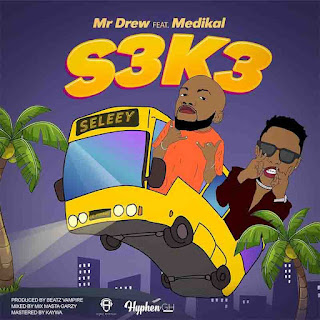![Auto Insurance [Car]: Things to Consider Before Purchasing <"Auto Insurance.png"Auto Insurance [Car]: Things to Consider Before Purchasing.">](https://blogger.googleusercontent.com/img/b/R29vZ2xl/AVvXsEj9iHyWOao3U1f70wP5QICcHFzrtuRR1fUpxReWAflJizpzF9Q9iW_SuVXGrhp12AsDbPstor0cM42TcjF-a_UeFJry0U7HwKZytuw-DFNQl4IYBmJX8D_hSvJ9cxeofYfsU5zrICcKQ4xbQDJn6xM6B7EvTDJeyntbv0k07YLfIz_SC7l9GadGBmFrIo4/s16000-rw/p_auto_coverage_473968822.jpg) |
| Auto Insurance [Car]: Things to Consider Before Purchasing |
Auto insurance is a crucial financial protection for drivers, offering coverage for damages and liabilities in the event of accidents or other unforeseen events involving their vehicles. Here's a comprehensive overview of everything you need to know about auto insurance:
Types of Coverage
Liability Coverage: This is typically required by law and
covers damages and injuries you cause to others in an accident.
Collision Coverage: This covers damage to your vehicle in a
collision, regardless of fault.
Comprehensive Coverage: This covers non-collision damages to
your vehicle, such as theft, vandalism, or natural disasters.
Uninsured/Underinsured Motorist Coverage: Protects you if
you're in an accident with a driver who doesn't have sufficient insurance.
Factors Affecting Premiums
Driving Record: A history of accidents or traffic violations
can increase premiums.
Vehicle Type: The make, model, and age of your vehicle can
impact premiums.
Location: Areas with higher rates of accidents or theft may
have higher premiums.
Credit Score: In some states, credit history can affect
insurance rates.
Coverage Limits and Deductibles: Higher coverage limits and
lower deductibles usually mean higher premiums.
Discounts
Safe Driver Discounts: Offered to drivers with a clean
driving record.
Multi-Policy Discounts: Bundling auto insurance with other
policies like home or renters’ insurance can lead to savings.
Safety Features: Vehicles equipped with safety features such
as anti-theft devices or airbags may qualify for discounts.
Low Mileage: If you drive less than the average driver, you
may qualify for discounts.
Policy Terms
Premium: The amount you pay for insurance coverage.
Deductible: The amount you're responsible for paying out of
pocket before insurance kicks in.
Policy Limits: The maximum amount your insurance will pay
for covered losses.
Exclusions: Certain events or types of damage may not be
covered by your policy.
Claims Process
Reporting: Notify your insurance company promptly after an
accident.
Documentation: Provide necessary documentation such as
police reports and photographs of damages.
Evaluation: Your insurer will assess the damages and
determine coverage.
Settlement: If the claim is approved, your insurer will
provide compensation for covered losses.
Shopping for Insurance
Compare Quotes: Get quotes from multiple insurers to find
the best rates.
Review Coverage Options: Ensure you're getting the coverage
you need at a price you can afford.
Check for Discounts: Inquire about available discounts that
you may qualify for.
Customer Service and Reputation: Consider the insurer's
reputation for customer service and claims handling.
Legal Requirements
1. Auto insurance requirements vary by state, so make sure
you understand the minimum coverage required in your area.
2. Failure to maintain
adequate insurance coverage can result in fines, license suspension, or other
penalties.
Understanding auto insurance is essential for protecting
yourself and your vehicle on the road. Be sure to review your policy carefully
and consult with insurance professionals if you have any questions or concerns.
"DISCLAIMER: The Views, Comments, Opinions, Contributions, and Statements made by Readers and Contributors on this platform do not necessarily represent the views or policy of Castino Studios."
For uploads and promotion of your music, contact Castino Studios.
Follow us on Twitter @castinostudios, Instagram as castinostudios, Facebook as djcastino born hard, and subscribe to our YouTube channel - Castino Studios.
Email us: castinostudios@gmail.com
WhatsApp: 0247064569



















![[Latest Music] KiDi – I Lied. Mp3 Download](https://blogger.googleusercontent.com/img/b/R29vZ2xl/AVvXsEgoXrJeac9gL2ybYDYUQItVsMZJt2cAu5hNsvW4LCeT756hlg4YvA6VtRSvLQEsACUZJo2h7hcbRKgkdQzpuj8RoOYPOjC5B7RuYJf6gQkSepR2fKPi7I3qyuqc-ivdWtwcMck1VV8sTcx82rQ_AS_DxPU-QUEgPppoJoM7S-QJBBwlioWMptG1VVYo/w680/419839C3-62F2-4434-8246-3BB34CCF602B.jpeg)


Leave your comments below